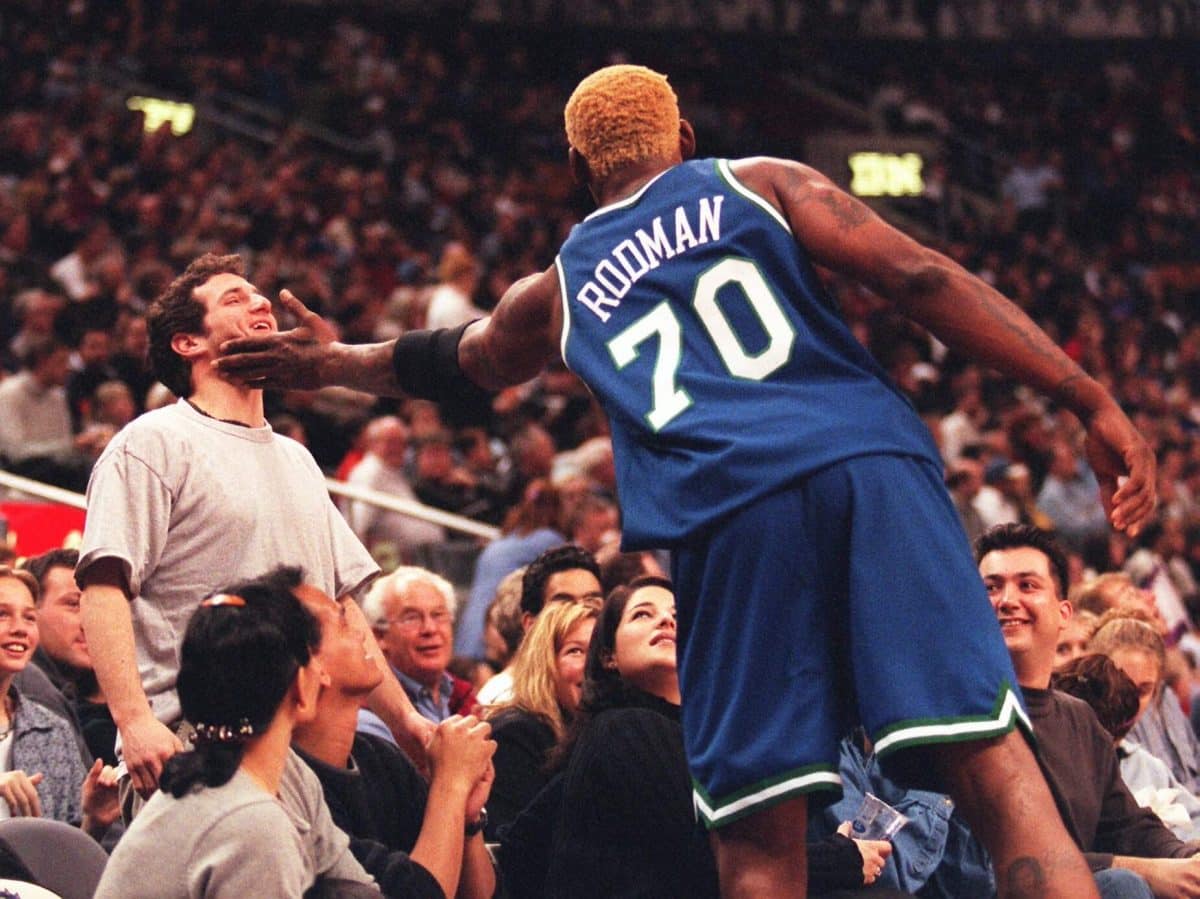NBA
Dennis Rodman Tried to Wear a No. 69 Jersey, but David Stern and the NBA Refused to Allow It

In professional sports, there are a few different schools of thought when it comes to numbers. Some athletes take it pretty seriously, choosing a number that represents a personal memory or ambition. Others are more casual, taking whatever the equipment manager has available. Then, there was Dennis Rodman.
If you know one thing about Dennis Rodman, both as an NBA player and a human being, it’s probably that he’s not afraid to do things his own way. He tried to do just that when he joined the Dallas Mavericks by requesting jersey No. 69. David Stern and the NBA, however, had other ideas.
Dennis Rodman was a successful, if unique, NBA player
RELATED: Dennis Rodman’s Drive to Becoming One of the Greatest Defenders and Rebounders in NBA History
During his time on the hardwood, Dennis Rodman was primarily known for two things: being a fierce competitor on the court and being quite the character away from the hardwood.
While Rodman wasn’t much of an athlete as a child, a belated growth spurt inspired him to return to the basketball court; after a brief stint in junior college and some time at Southeastern Oklahoma, the Worm decided he was ready for the pros. He entered the 1986 NBA draft and joined the Detroit Pistons early in the second round.
While he changed teams quite a few times during his career, Rodman’s style of play never changed. The forward was a fearless rebounder and a tough defender; although he was never going to win the scoring title, that helped him play an invaluable role on five championship teams.
Rodman, however, also made headlines with his behavior, which ranged from the innocently weird to the downright bizarre. He wore a wedding dress while promoting his book, dated celebrities, kicked a cameraman, and did just about everything imaginable in between.
Rodman briefly moved to the Dallas Mavericks
RELATED: Massive Dennis Rodman Mural Upset Teammates and Disrupted Chicago Traffic
During his time in the NBA, Dennis Rodman found most of his success with the Detroit Pistons and Chicago Bulls. At the end of his career, however, he found himself wearing a few different uniforms.
In 1999, the forward inked a deal with the LA Lakers. He played 23 games during the lockout-shortened season, failing to make much of an impact. The following campaign, he joined the Dallas Mavericks, in theory, to provide a spark to a struggling franchise.
Rodman did not lift the Mavs to the next level, though. He only suited up for 12 games in Dallas, averaging 2.8 points and 14.3 rebounds per outing. As documented by the Dallas Morning News, that brief stint was something of a greatest hits tour for the forward. He was ejected from two games, suspended for another game, and criticized his teammates and Mark Cuban.
Dennis Rodman wanted to wear number 69, but the NBA said no
During his brief stint with the Dallas Mavericks, Dennis Rodman donned a No. 70 jersey. If the forward had his way, though, he would have hit the hardwood wearing a different number.
According to a Twitter thread by Marc Stein of the New York Times, Rodman planned to wear No. 69 in Dallas. The Mavs even had some jerseys made in preparation for his arrival. David Stern and the NBA, however, didn’t approve of Rodman’s choice, so the forward simply added one to turn 69 into 70.
Stein also noted that he’s heard Cuban still has those Dennis Rodman No. 69 jerseys. If that’s true, they’re a pretty nice souvenir from a colorful month of Dallas Mavericks history.
Stats courtesy of Basketball-Reference











